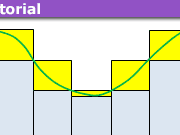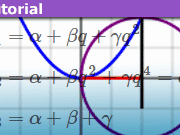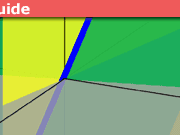In High School and Want to Do Advanced Mathematics?
This insight is written for high school students who don’t feel very challenged by their high school courses. Or maybe those high school students who want to have a taste of what university math is like. The good news is that you don’t have to wait until university to see exciting mathematics, you can learn it right now! Of course, plenty of math will require quite heavy prerequisites like three calculus courses, so it’s not like you can do everything. However, there are plenty of options still available to you.
Do not neglect your high school courses though. I get it, factorizing 50 polynomials for homework, is pretty boring. But those skills are actually very important. You need to master them or you will get in trouble. Do not think that being able to do university mathematics somehow enables you to skip high school math. It doesn’t.
You should probably also seriously look into mathematics competitions. They can be great fun if you’re into this kind of stuff. I personally never was, and I failed every single competition badly. So yes, it is definitely possible to be successful in mathematics and not like/not do well in competitions. Also, competitions are not really university mathematics. They’re something completely separate.
So what are some of the things you could do? Let me give some examples. There are plenty of more possibilities though.
Table of Contents
1) Abstract algebra
The good news is that this doesn’t require any calculus or trigonometry at all. Maybe some of the examples or exercises use these notions, but not in a very profound way (i.e. you can easily skip them without any harm). A great book is Pinter’s “A book of Abstract Algebra”“. http://www.amazon.com/Book-Abstract-Algebra-Edition-Mathematics/dp/0486474178 A high schooler should most definitely be able to handle this book (but it won’t be easy). Armstrong “Groups and Symmetry” offers a more geometric approach http://www.amazon.com/Groups-Symmetry-Undergraduate-Texts-Mathematics/dp/0387966757
So what should you know:
– You should be acquainted with solving polynomial equations. The quadratic formula is definitely a must.
– You should be acquainted with some set theory. For example the language of sets, functions, unions, intersections, cartesian products. Nothing too advanced.
– You should be comfortable with some really basic number theory: prime numbers, fundamental theorem of arithmetic.
– You should be comfortable with some proofs methods like mathematical induction and contradiction.
– You should be a bit comfortable with ruler and compass constructions (but this is not a hard requirement)
– In geometry, you should be comfortable with vectors and equations of lines and planes.
What will you learn?
– Group theory, which is used to describe symmetries. All kinds of symmetries. Symmetries of a geometric object like cubes, to symmetries of a physical theory.
– Ring theory, which can be used in code theory and algebraic geometry. In-ring theory, you will go very deeply into the fundamental theorem of arithmetic.
– Field theory, which eventually leads to a deep study of polynomial equations. In particular, you will show that most polynomial equations do not have a solution we can (easily) find exactly.
2) Linear Algebra
Linear algebra is basically geometry in arbitrary dimensions. You will see what points, lines, and planes are in 1000-dimensional space. Furthermore, many of the methods of linear algebra are very important in all kinds of science and engineering. So if you’re looking for a more applicable subject, this is it. I really like MacDonald’s “Linear and geometric algebra” since it gives a very cool introduction to the (very cool and useful, but often ignored) theory of geometric algebra. http://www.amazon.com/Linear-Geometric-Algebra-Alan-Macdonald/dp/1453854932
What should you know?
– You should be very comfortable with vectors, vector sums, inner product (aka scalar or dot product) as seen in geometry.
– You should be very comfortable with matrices, like solving linear equations using Gauss’s method, multiplying matrices, and inverting matrices.
– Some notions of proofs and set theory would be nice. Nothing too advanced.
What will you learn?
– The abstract notion of a vector space is an amazingly useful notion. It shows up everywhere in physics and engineering.
– The notion of geometric algebra is a very useful tool to know, but it is often ignored in undergrad (not because it is too difficult).
– The theory of linear maps aids in geometry, and also in many linear problems. For example, matrix diagonalization is used everywhere.
3) Euclidean Geometry
Why not learn from the masters? Why not read the most important math book EVER written. I’m talking of course about Euclid’s Geometry. This book has been used for centuries to teach students and it still is not outdated. I highly recommend the following site http://aleph0.clarku.edu/~djoyce/java/elements/bookI/bookI.html. I you prefer a book form, then try Casey and Callahan’s “Euclids Elements Redux” http://www.amazon.com/Euclids-Elements-Redux-Daniel-Callahan/dp/1312110783 which is also available for free online. This book also contains cool exercises. In fact, I recommend using both resources. If you want a more advanced commentary, then try the first chapter of Hartshorne’s Geometry: Euclid and beyond (beyond the first chapter will likely be too advanced for you unless you study some abstract algebra). http://www.amazon.com/Geometry-Euclid-Beyond-Undergraduate-Mathematics/dp/0387986502
What do you need to know?
– Not really anything specific. Just be motivated and willing to work hard.
What will you learn?
I highly recommend going through the first four volumes of Euclid. The other volumes are much more outdated and (in my very humble opinion) did not stand the test of time all that well. You will do geometry starting from scratch and you will go up to the construction of the regular pentagon, which is an amazingly beautiful construction in mathematics.
4) Affine, projective, spherical, and hyperbolic geometry
I actually learned this in high school. It was the deciding factor for me: it was so beautiful that I decided to go into math. I highly recommend Brannan, Esplen, Gray’s “Geometry”. The problem is that it requires somewhat more prerequisites than to be expected from the typical high school curriculum, but nothing you can’t learn in a few days.
What do you need to know?
– Obviously, a good knowledge of high school (Euclidean) geometry is needed. This includes vector computations and equations of planes and lines.
– A solid knowledge of matrix computation knowledge is necessary. This includes multiplying matrices, inverting matrices, and diagonalization. Also solving linear equations. I guess only a minority of people have seen matrix diagonalization, but it is not so difficult to learn the basics if you are willing to ignore the proofs for now. Khan Academy videos should get you acquainted with enough of the basics.
– Algebra knowledge including solving equations and polynomial equations.
– Some very basic group theory. The first few chapters of Pinter’s group theory or Armstrong’s “Groups and Symmetry” are nice http://www.amazon.com/Groups-Symmetry-Undergraduate-Texts-Mathematics/dp/0387966757 and http://www.amazon.com/Book-Abstract-Algebra-Edition-Mathematics/dp/0486474178 Notions of groups and subgroups are necessary.
What will you learn?
– Conic sections and their basic applications. Including very fun stuff like why the properties of parabolas are so useful in practice.
– Projective geometry is amazingly beautiful and is actually applied in image processing (although sadly many image processing courses never mention projective geometry).
– Spherical geometry. I hope I don’t need to tell you the applications of spherical geometry.
– Hyperbolic geometry is a fun and weird geometry. It was a mathematical curiosity for a long time until such weird geometries gained a lot more important with relativity theory.
5) Other
Of course, there are a lot of topics I didn’t mention here, and a lot of books I didn’t mention. An honorable mention is the truly beautiful and excellent books by John Stillwell, including “The four pillars of geometry” and “Roads to Infinity”. Check them out, there surely is a subject you like. Stillwell is a master in exposition as well!
Advanced education and experience with mathematics








[QUOTE=”acegikmoqsuwy, post: 5461572, member: 513920″]
Techniques such as combinatorial Nullstellensatz are great help when solving certain olympiad problems.
Here is a problem from a past TST (one of the high school proofwriting math competitions).
For a prime [IMG]http://latex.artofproblemsolving.com/3/6/f/36f73fc1312ee0349b3f3a0f3bd9eb5504339011.png[/IMG], a subset [IMG]http://latex.artofproblemsolving.com/a/d/2/ad28c83c99a8fd0dd2e2e594c9d02ee532765a0a.png[/IMG] of residues modulo [IMG]http://latex.artofproblemsolving.com/3/6/f/36f73fc1312ee0349b3f3a0f3bd9eb5504339011.png[/IMG] is called a [I]sum-free multiplicative subgroup[/I] of [IMG]http://latex.artofproblemsolving.com/b/1/e/b1e3fe5347b6585e969d11f1b9c9c6e4e9b52a44.png[/IMG] if
[IMG]http://latex.artofproblemsolving.com/d/5/3/d534b942086dae501cbdce030206adb87567bb07.png[/IMG] there is a nonzero residue [IMG]http://latex.artofproblemsolving.com/1/0/f/10f32377ac67d94f764f12a15ea987e88c85d3e1.png[/IMG] modulo [IMG]http://latex.artofproblemsolving.com/3/6/f/36f73fc1312ee0349b3f3a0f3bd9eb5504339011.png[/IMG] such that [IMG]http://latex.artofproblemsolving.com/d/a/c/dac8a278d33f59792b9ca46a992a6479675cec01.png[/IMG] (all considered mod [IMG]http://latex.artofproblemsolving.com/3/6/f/36f73fc1312ee0349b3f3a0f3bd9eb5504339011.png[/IMG]), and
[IMG]http://latex.artofproblemsolving.com/d/5/3/d534b942086dae501cbdce030206adb87567bb07.png[/IMG] there are no [IMG]http://latex.artofproblemsolving.com/4/8/1/481f18278a02eb4c8a5e0ef690f77801ceda1bd8.png[/IMG] (not necessarily distinct) such that [IMG]http://latex.artofproblemsolving.com/8/b/4/8b4b1f26d239c4248e00ab2f36aead778663960e.png[/IMG].
Prove that for every integer [IMG]http://latex.artofproblemsolving.com/f/c/9/fc97ef67268cd4e91bacdf12b8901d7036c9a056.png[/IMG], there is a prime [IMG]http://latex.artofproblemsolving.com/3/6/f/36f73fc1312ee0349b3f3a0f3bd9eb5504339011.png[/IMG] and a sum-free multiplicative subgroup [IMG]http://latex.artofproblemsolving.com/a/d/2/ad28c83c99a8fd0dd2e2e594c9d02ee532765a0a.png[/IMG] of [IMG]http://latex.artofproblemsolving.com/b/1/e/b1e3fe5347b6585e969d11f1b9c9c6e4e9b52a44.png[/IMG] such that [IMG]http://latex.artofproblemsolving.com/c/5/c/c5cde33941eef066d2893edbd828b0e9d7d1d55a.png[/IMG].
Sorry for the large text (I don’t know how that happened, something wrong with the copy and paste).[/QUOTE]
I never heard of the combinatorial nullstellensatz before neither did I ever need it. This is why I wrote my insight, I wanted to present people books and literature that gave you the knowledge that actual mathematicians study and that people will definitely encounter and need in university. Not special kind of techniques that are pretty obscure outside the context of competitions.
[QUOTE=”Calaver, post: 5460649, member: 581313″]
Where are you going to school that allows you to proceed so quickly to college-level math? :wideeyed:
[/QUOTE]
My area in general does not have many students progressing forward quickly in math (actually the only reason I even know many extremely advanced students is through AoPS). My situation was honestly just pure luck in that my school happened to recognize that I was advanced enough to complete Algebra 2, Precalc, AP Calc BC, and Calculus III all in the same year (spent hours everyday in the summer studying). I suppose my school had never seen such a student before, and it got excited.
[QUOTE=”Calaver, post: 5460649, member: 581313″]The majority of high school students that I know that are “interested in math” (not quite sure what you mean by that – do you mean people who enjoy math or people who are seriously thinking about math/physics as a career?) [I]do not [/I]know Projective Geometry, Graph Theory, and Abstract Algebra.[/QUOTE]
Well, in my actual city (there is a city nearby which has much better standards) math (and actually also physics) is looked down upon by nearly everyone (at least as far as I can see), and the only other kid I know who is seriously thinking about persuing math in the future is definitely better (in that he knows more in depth) than me in nearly all areas of math, however, his school won’t let him skip AP Calc BC.
The statement about proofs was a reference to high school math proofwriting competitions such as the TST and IMO which often require in-depth knowledge of topics in Group Theory and Abstract Algebra.
[QUOTE=”Calaver, post: 5460649, member: 581313″]I am a bit in awe since I have no opportunity to attend a Diff EQ class right now (as a sophomore) and being in Geometry in 9th grade is the highest you can normally do in my school (and other schools around my area).[/QUOTE]
I think most areas have similar rules.
There was a similar rule in my middle school, however my high school has something called a “test-out” in which you can essentially take the final exam of a class before you take the class, and if you score high enough (80% is the bare minimum), then you are allowed to skip the class. There was a similar idea mentioned at a college I tried this in, but they wanted the fees for the class in exchange for the exam, and they would not give me credit.
[QUOTE=”micromass, post: 5461247, member: 205308″]But it’s not fair to say there are many high school students with a good grasp on projective geometry and abstract algebra. I really don’t know where you get this from.[/QUOTE]
In retrospect I can agree that the use of the term “many” was quite vague. There are just a few. (Try being on AoPS all day every day when almost everybody seemingly knows everything :-p)
[QUOTE=”micromass, post: 5461247, member: 205308″]Also, abstract algebra is a huge field. It takes years before you really get the basics of it. Do you really mean to say that high school students know the Sylow theorems? The fundamental theorem of Galois correspondence? The Nullstellensatz? The chinese remainder theorem? etc. Somehow I find this very very very very hard to believe…[/QUOTE]
Techniques such as combinatorial Nullstellensatz are great help when solving certain olympiad problems.
Here is a problem from a past TST (one of the high school proofwriting math competitions).
For a prime [IMG]http://latex.artofproblemsolving.com/3/6/f/36f73fc1312ee0349b3f3a0f3bd9eb5504339011.png[/IMG], a subset [IMG]http://latex.artofproblemsolving.com/a/d/2/ad28c83c99a8fd0dd2e2e594c9d02ee532765a0a.png[/IMG] of residues modulo [IMG]http://latex.artofproblemsolving.com/3/6/f/36f73fc1312ee0349b3f3a0f3bd9eb5504339011.png[/IMG] is called a [I]sum-free multiplicative subgroup[/I] of [IMG]http://latex.artofproblemsolving.com/b/1/e/b1e3fe5347b6585e969d11f1b9c9c6e4e9b52a44.png[/IMG] if
[IMG]http://latex.artofproblemsolving.com/d/5/3/d534b942086dae501cbdce030206adb87567bb07.png[/IMG] there is a nonzero residue [IMG]http://latex.artofproblemsolving.com/1/0/f/10f32377ac67d94f764f12a15ea987e88c85d3e1.png[/IMG] modulo [IMG]http://latex.artofproblemsolving.com/3/6/f/36f73fc1312ee0349b3f3a0f3bd9eb5504339011.png[/IMG] such that [IMG]http://latex.artofproblemsolving.com/d/a/c/dac8a278d33f59792b9ca46a992a6479675cec01.png[/IMG] (all considered mod [IMG]http://latex.artofproblemsolving.com/3/6/f/36f73fc1312ee0349b3f3a0f3bd9eb5504339011.png[/IMG]), and
[IMG]http://latex.artofproblemsolving.com/d/5/3/d534b942086dae501cbdce030206adb87567bb07.png[/IMG] there are no [IMG]http://latex.artofproblemsolving.com/4/8/1/481f18278a02eb4c8a5e0ef690f77801ceda1bd8.png[/IMG] (not necessarily distinct) such that [IMG]http://latex.artofproblemsolving.com/8/b/4/8b4b1f26d239c4248e00ab2f36aead778663960e.png[/IMG].
Prove that for every integer [IMG]http://latex.artofproblemsolving.com/f/c/9/fc97ef67268cd4e91bacdf12b8901d7036c9a056.png[/IMG], there is a prime [IMG]http://latex.artofproblemsolving.com/3/6/f/36f73fc1312ee0349b3f3a0f3bd9eb5504339011.png[/IMG] and a sum-free multiplicative subgroup [IMG]http://latex.artofproblemsolving.com/a/d/2/ad28c83c99a8fd0dd2e2e594c9d02ee532765a0a.png[/IMG] of [IMG]http://latex.artofproblemsolving.com/b/1/e/b1e3fe5347b6585e969d11f1b9c9c6e4e9b52a44.png[/IMG] such that [IMG]http://latex.artofproblemsolving.com/c/5/c/c5cde33941eef066d2893edbd828b0e9d7d1d55a.png[/IMG].
Sorry for the large text (I don’t know how that happened, something wrong with the copy and paste).
[QUOTE=”IGU, post: 5461313, member: 381937″]You should check out the forums on AoPS if you want to find students like that. They’re generally not here.
[/QUOTE]
Exactly. And this recommendation insight is for the students who are here.
[QUOTE=”micromass, post: 5461247, member: 205308″]High school kids knowing abstract algebra? I’m not saying that it doesn’t happen, but I’ve honestly never talked to such a student before. And I’ve talked to hundreds of students before on PF.[/QUOTE]
You should check out the forums on AoPS if you want to find students like that. They’re generally not here.
[QUOTE]Also, abstract algebra is a huge field. It takes years before you really get the basics of it. Do you really mean to say that high school students know the Sylow theorems? The fundamental theorem of Galois correspondence? The Nullstellensatz? The chinese remainder theorem? etc. Somehow I find this very very very very hard to believe…[/QUOTE]
Here’s the Art of Problem Solving [URL=’http://www.artofproblemsolving.com/school/course/catalog/grouptheory’]course on Group Theory[/URL], which has been around for only a couple of years. So you can be assured there are quite a few high school kids learning at least to this level. I’m sure some go deeper.
My kid first started studying on his own out of Herstein’s [URL=’http://www.amazon.com/Topics-Algebra-2nd-Edition-Herstein/dp/0471010901′]Topics in Algebra[/URL] when he was 13 (he got through only a couple of chapters). Later he used Jacobson’s [URL=’http://www.amazon.com/Basic-Algebra-Second-Dover-Mathematics/dp/0486471896′]Basic Algebra I[/URL] & [URL=’http://www.amazon.com/Basic-Algebra-II-Second-Mathematics/dp/048647187X’]II[/URL]. By the time he went off to college he had spent five years studying modern algebra with varying degrees of intensity. One of the last algebra related things he did before going off to Cambridge was a graduate course on algebraic number theory followed by some readings on ramification from Serre’s [URL=’http://www.amazon.com/Local-Fields-Graduate-Texts-Mathematics/dp/0387904247′]Local Fields[/URL]. His experience is very uncommon, but not unknown. It’s going to be very interesting to see what the level of the kids coming out of [URL=’https://en.wikipedia.org/wiki/Proof_School’]Proof School[/URL] will be in a couple of years.
High school kids knowing abstract algebra? I’m not saying that it doesn’t happen, but I’ve honestly never talked to such a student before. And I’ve talked to hundreds of students before on PF. acegikmoqsuwy, you’re clearly too advanced to get something useful out of this guide. But it’s not fair to say there are many high school students with a good grasp on projective geometry and abstract algebra. I really don’t know where you get this from.
Also, abstract algebra is a huge field. It takes years before you really get the basics of it. Do you really mean to say that high school students know the Sylow theorems? The fundamental theorem of Galois correspondence? The Nullstellensatz? The chinese remainder theorem? etc. Somehow I find this very very very very hard to believe…
[QUOTE=”acegikmoqsuwy, post: 5460451, member: 513920″]
Anyway, in my opinion, I agree that the article seems “outdated” in a sense, [B]since the majority of high schoolers I know that are interested math already know topics including Projective Geometry, Graph Theory, and Abstract Algebra and are able to use them with moderate success on proof contests. [/B]The biggest problem with higher level math that’s come about in my high school, as well as for many other high schoolers I know, is that even the local college courses are not enough; [B]some kids complete Calculus I-III, Linear Algebra, and Differential Equations by their 9th grade year[/B] and then are stuck because they’ve exhausted all the classes from their community colleges and cannot afford the higher level classes at the actual colleges (since the school only pays a small fraction of the cost). As for me,[B] I was slowed a tad since I was only placed in Geometry in 8th grade, but even as I have worked up to Differential Equations in 10th grade, I find myself stuck in the exact same issue.[/B]
[/QUOTE]
[I](Bold added by me for emphasis)[/I]
Where are you going to school that allows you to proceed so quickly to college-level math? :wideeyed:
It’s not that I don’t believe you or that I mean to demean your frustrations, but my experience is not at all similar to yours (I’m currently a sophomore in high school, by the way).
The majority of high school students that I know that are “interested in math” (not quite sure what you mean by that – do you mean people who enjoy math or people who are seriously thinking about math/physics as a career?) [I]do not [/I]know Projective Geometry, Graph Theory, and Abstract Algebra. Although, your latter statement about proof contests makes me think that you and I have different definitions of “know.” Being involved in contest math myself, one does not necessarily have to [I]understand [/I]the topic fully to get the right answer. So do they actually understand the ins and outs of it, or are they just comfortable with the basics (neither of which are bad, but that part of your post seems a bit ambiguous to me)?
In addition, I have never met anyone who has completed Calculus I-III, Linear Algebra, and Diff EQ by their 9th grade year. Is this the norm for the very advanced students in your area?
Also, with your statement:
[QUOTE=”acegikmoqsuwy”]
I was slowed a tad since I was only placed in Geometry in 8th grade, but even as I have worked up to Differential Equations in 10th grade, I find myself stuck in the exact same issue.
[/QUOTE]
I am a bit in awe since I have no opportunity to attend a Diff EQ class right now (as a sophomore) and being in Geometry in 9th grade is the highest you can normally do in my school (and other schools around my area).
So, in my opinion, micromass’ post does not seem meant to the student of forty years ago (unless my area is just full of bums who are complete underachievers – which is possible but unlikely). He gives excellent suggestions, and as someone currently trying to do some advanced mathematics, I can say that I find the directions in which he points to be very helpful. The only reason why I didn’t get more out of the Insight is because I’ve spent some time on these forums and seen his other posts where he mentions similar things and already started on one of the areas he mentions (namely, linear algebra – and I see he’s got a recent post on that, too!).
EDIT: Sorry if weirdness happened with the quoted section of my comment on the actual Insight page. I posted it in the regular forums and for some reason the quote brackets aren’t showing up on the other page.
[QUOTE=”acegikmoqsuwy, post: 5460451, member: 513920″]… some kids complete Calculus I-III, Linear Algebra, and Differential Equations by their 9th grade year and then are stuck because they’ve exhausted all the classes from their community colleges and cannot afford the higher level classes at the actual colleges (since the school only pays a small fraction of the cost).[/QUOTE]
The solution to that problem for my math kid was to just ignore getting credit for anything. He audited a large variety of classes at local universities while in middle school and high school. Never officially, always by just asking permission of the professor who taught the class. Mostly grad classes after the first couple. It worked wonderfully and cost nothing (except for books). However I did pull him out of school to homeschool him, which made it possible to attend college classes in the middle of the day — that’s difficult to do if you are still going to high school.
He also learned things on his own. For calculus he worked his was through Apostol I & II, doing all the problems (not all the practice exercises though). Similarly he self-studied various other topics from the best books I could find for him (e.g. he learned real analysis from Tao’s notes for [URL=’https://terrytao.files.wordpress.com/2012/12/gsm-117-tao3-epsilon1.pdf’]An Epsilon of Room[/URL]).
[QUOTE]Another thing I would like to point out: in my opinion, the issue with all the high school and college classes is not that the material is easy (since the material being taught is not going to change no matter how “hard” you make the class), but rather in the problems given. Most problems that I have seen consist of trivial observations from the definition, or “plug-and-chug.”[/QUOTE]
Yeah, it’s pretty much impossible to get courses meant for mathematicians at community colleges — it’s not their audience. Actually it’s hard at most universities (just count the ones using Stewart for calculus rather than Apostol). So with pretty much everything you have to take responsibility upon yourself for learning the material properly. Good training for the rest of life.
[QUOTE]This is what makes (in my opinion), mathematics competitions far more interesting; you are not supposed to know how to solve the problem, rather you are supposed to figure out on your own what the key ingredients are that are needed to solve the problem. That is the art of problem solving.[/QUOTE]
Yeah, that’s the good part. But the problem with competition problems is that they are known to be solvable in a pretty short time — this is completely unlike the sorts of problems mathematicians work on. And you have to be a fast thinker to do them, which discourages the slow, deep thinkers who are the ones most likely to succeed as research mathematicians. So it’s a mixed bag. Works for some people, not others.
[QUOTE=”IGU, post: 5437264, member: 381937″]Good stuff, but it might as well have been written for the student of forty years ago. Nowadays the world is full of students in high school doing advanced mathematics. And most of them use materials from [URL=’http://www.artofproblemsolving.com’]Art of Problem Solving[/URL]. Their books are excellent and fairly priced. Their classes are also excellent, but kind of expensive and not suitable for all. But for kids who love math and are good at it there’s nothing better out there. Also check out their [URL=’http://www.artofproblemsolving.com/alcumus’]Alcumus[/URL] online problem system. Free and useful. They also support social interaction and problem solving with online forums, also free and useful.[/QUOTE]
I agree one hundred percent. I am currently a high schooler and AoPS is my regular go-to for anything to do with math, whether it be studying for competitions, learning higher level math, or perhaps if I’m just bored and want someone to talk to about math. The part which really caught my eye the first time I ever went on AoPS was the following quote on their page: “Is math class too easy for you? You’ve come to the right place!”
Anyway, in my opinion, I agree that the article seems “outdated” in a sense, since the majority of high schoolers I know that are interested math already know topics including Projective Geometry, Graph Theory, and Abstract Algebra and are able to use them with moderate success on proof contests. The biggest problem with higher level math that’s come about in my high school, as well as for many other high schoolers I know, is that even the local college courses are not enough; some kids complete Calculus I-III, Linear Algebra, and Differential Equations by their 9th grade year and then are stuck because they’ve exhausted all the classes from their community colleges and cannot afford the higher level classes at the actual colleges (since the school only pays a small fraction of the cost). As for me, I was slowed a tad since I was only placed in Geometry in 8th grade, but even as I have worked up to Differential Equations in 10th grade, I find myself stuck in the exact same issue.
Another thing I would like to point out: in my opinion, the issue with all the high school and college classes is not that the material is easy (since the material being taught is not going to change no matter how “hard” you make the class), but rather in the problems given. Most problems that I have seen consist of trivial observations from the definition, or “plug-and-chug.” This is what makes (in my opinion), mathematics competitions far more interesting; you are not supposed to know how to solve the problem, rather you are supposed to figure out on your own what the key ingredients are that are needed to solve the problem. That is the art of problem solving.
thanks alot
could you please offer some books about Lie algebra (An, Bn,…)and exceptional like G2 algebra in physics with easy language?
thanks again
[QUOTE=”micromass, post: 5435484, member: 205308″]micromass submitted a new PF Insights post
[URL=’https://www.physicsforums.com/insights/high-school-want-advanced-mathematics/’]In High School and Want to Do Advanced Mathematics?[/URL]…[/QUOTE]
Good stuff, but it might as well have been written for the student of forty years ago. Nowadays the world is full of students in high school doing advanced mathematics. And most of them use materials from [URL=’http://www.artofproblemsolving.com’]Art of Problem Solving[/URL]. Their books are excellent and fairly priced. Their classes are also excellent, but kind of expensive and not suitable for all. But for kids who love math and are good at it there’s nothing better out there. Also check out their [URL=’http://www.artofproblemsolving.com/alcumus’]Alcumus[/URL] online problem system. Free and useful. They also support social interaction and problem solving with online forums, also free and useful.
My math kid used several of their books a number of years ago, both when he was in public school and needed more and better materials, and later when he was home schooled. It was a revelation. AoPS was started by a bunch of math guys who set out to create the things they wished were available when they were in high school. I think they’ve succeeded admirably. You would be doing yourself a favor to become familiar with it.
Wow. This insight is awesome. Thanks a lot micromass.
[QUOTE=”Yashbhatt, post: 5435599, member: 497766″]Great post.
I have a question : How does one gain intuition about matrices, determinants? I can find inverses and solve determinants using properties but I don’t think I truly understand them. Does linear algebra provide an insight into them?[/QUOTE]
You gain intuition about matrices and determinants only by studying the underlying geometry. This geometry is very naturally that of vector spaces and linear transformations. A matrix is then simply a very easy way to represent linear transformations, and the determinant is simply how the linear transformation acts on the volume of the unit cube. The annoying point is that it is very recommended to be able to compute with matrices and determinants before you should handle vector spaces. The effect is then that you compute with matrices without seeing what they really are. You’ll have to get through this, I fear.
[quote=”RubinLicht, post: 5435645″][quote=”Yashbhatt, post: 5435599″]Great post.
I have a question : How does one gain intuition about matrices, determinants? I can find inverses and solve determinants using properties but I don’t think I truly understand them. Does linear algebra provide an insight into them?[/quote]That IS linear algebra, get a good book and work through it and see for yourself. I assume you just learned how to do it in your algebra class and the teacher didn’t explain much. If so, then I was in the same situation until I took linear algebra.[/quote]Sorry strange format
[quote=”Yashbhatt, post: 5435599″]Great post.
I have a question : How does one gain intuition about matrices, determinants? I can find inverses and solve determinants using properties but I don’t think I truly understand them. Does linear algebra provide an insight into them?[/quote]That IS linear algebra, get a good book and work through it and see for yourself. I assume you just learned how to do it in your algebra class and the teacher didn’t explain much. If so, then I was in the same situation until I took linear algebra.
Great post.
I have a question : How does one gain intuition about matrices, determinants? I can find inverses and solve determinants using properties but I don’t think I truly understand them. Does linear algebra provide an insight into them?
Micromass, this insight was written like it was just for me. Thanks so much . . . :smile:
thanks alotcould you please offer some books about Lie algebra (An, Bn,…)and exceptional like G2 algebra in physics with easy language?thanks again
Wow. This insight is awesome. Thanks a lot micromass.
Sorry strange format
That IS linear algebra, get a good book and work through it and see for yourself. I assume you just learned how to do it in your algebra class and the teacher didn't explain much. If so, then I was in the same situation until I took linear algebra.
Great post. I have a question : How does one gain intuition about matrices, determinants? I can find inverses and solve determinants using properties but I don't think I truly understand them. Does linear algebra provide an insight into them?